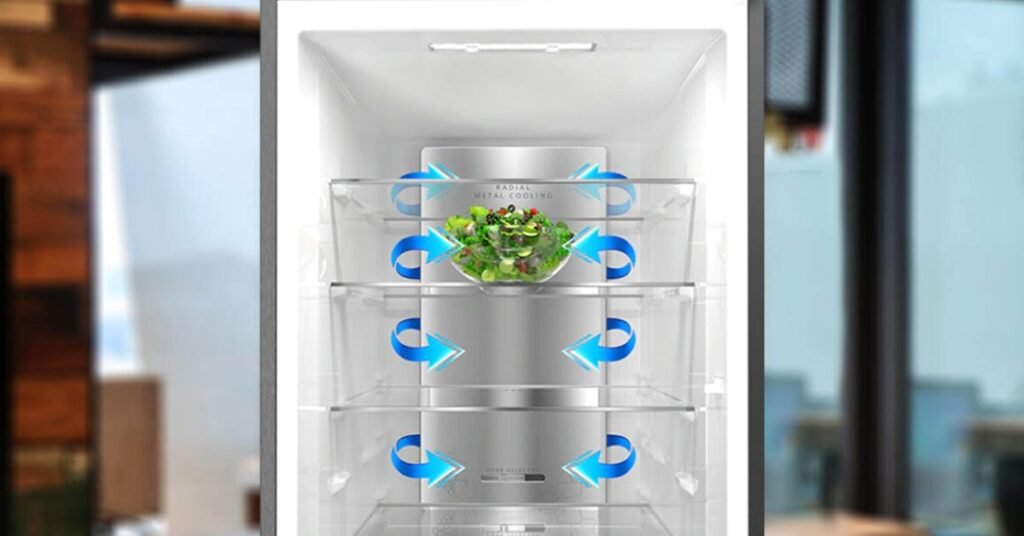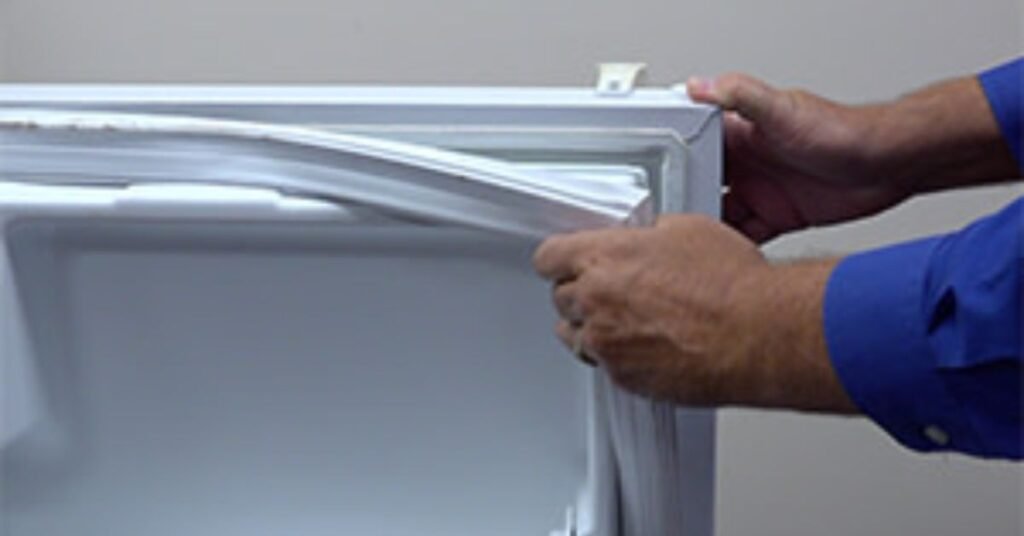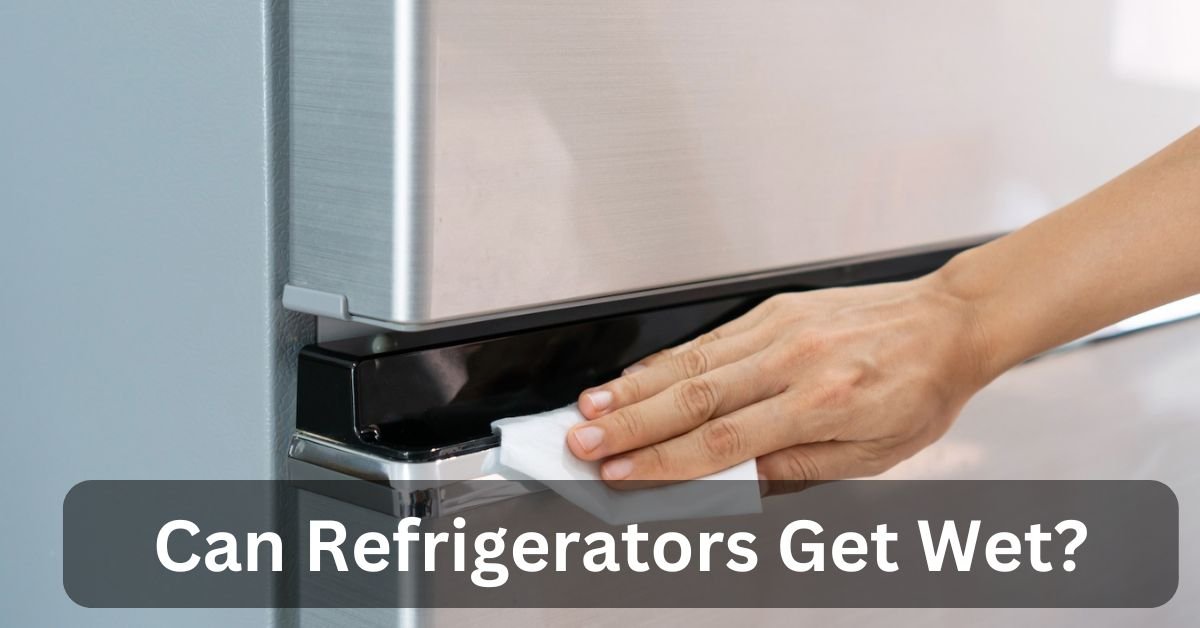Yet, amidst refrigerator’s terrific capability, questions frequently arise about their vulnerability to moisture. Can refrigerators get wet?
Yes, fridges can get moist on their exterior surfaces, but keeping them dry is critical to save you harm.
Let’s delve into those queries and recognize the intricacies of moisture issues concerning refrigerators.
Understanding Refrigerator Components and Vulnerabilities:
To comprehend how moisture affects refrigerators, it is critical first to apprehend their essential additives:
1. Exterior Surfaces:
The outdoor fridges, usually crafted from steel or plastic, are designed to repel moisture and save you from harm and corrosion. However, exposure to immoderate moisture or prolonged contact with water can cause trouble.
2. Interior Walls and Shelves:
Inside the fridge, surfaces are often made of materials that withstand moisture and are easy to smooth, including tempered glass, plastic, or metallic. These substances are decided on to preserve hygiene and prevent meal infection.
3. Cooling System:

The cooling device of a fridge is predicated on a closed-loop refrigeration cycle. While moisture isn’t immediately involved in this technique, excessive humidity in the surroundings can affect the efficiency of warmth trade, impacting regular cooling standard overall performance.
Can Refrigerators Handle Water?
Refrigerators are designed to address minor quantities of water, including condensation that takes place indoors through cooling techniques. However, they’re now designed to handle significant small amounts of water or direct exposure to water on their outdoor surfaces. Excessive water can damage electronic components, cause rust on metal elements, or result in mildew boom.
It’s essential to directly ease up any spills or leaks throughout the fridge to prevent water from seeping into sensitive areas. Regular safety, which includes checking and cleaning drip pans and ensuring door seals are intact, permits preserving the refrigerator’s functionality and sturdiness.
Also Read: No Power In Camper Except Microwave-Troubleshooting Guide
Common Causes of Moisture Around Refrigerators:
Moisture spherical fridges can stem from diverse belongings:
1. Ambient Humidity:
High humidity stages in the kitchen or surrounding environment can result in condensation forming on the refrigerator’s outside surfaces. That is generally harmless but might also necessitate occasional wiping to save you from water buildup.
2. Water Spills:
Accidental water or other beverage spills near the fridge can result in moisture seeping under the equipment. That can cause electric dangers or harm to the floors if no longer addressed at once.
3. Improper Seals:

Faulty door gaskets or seals permit warm, humid air to infiltrate the refrigerators indoors. When this moist air meets the bloodless air internally, condensation paperwork on cabinets and walls doubtlessly leads to mold growth or water puddles.
4. Defrosting:
During the defrosting cycle of a fridge, ice amassed in the freezer compartment melts into water. If not well tired or evaporated, this water can leak onto the ground or acquire inside the fridge.
Cleaning Refrigerators Safely:
Cleaning your fridge should include some critical steps to make sure each powerful cleansing and the safety of the device:
1. Prepare the refrigerator:
Unplug the refrigerator or turn off the electricity to avoid any electric risks while cleaning. Remove all meal items and place them in a cooler with ice packs to hold them cold throughout the cleaning system.
2. Clean indoor surfaces:
Clean the inside walls and surfaces of the refrigerator with warm water and mild dish soap. If it’s not too much trouble, shun involving abrasives or solid cleaning agents as they would hurt the cooler’s end. Pay attention to spills and stains, and use a gentle material or sponge to scrub softly if essential.
Also Read: What Stays Hot Even In The Refrigerator?-Complete Guide
Effects of Moisture on Refrigerator Performance:
While modern fridges are designed to withstand ordinary degrees of moisture, prolonged publicity to excessive moisture or water can cause numerous troubles:
1. Rust and Corrosion:
Inordinate dampness on open-air surfaces can cause rusting and consumption throughout the long term, fundamentally on metal components like pivots or handles.
2. Mold and Mildew:
Interior moisture can promote mold and mold growth on shelves, walls, or meal containers, posing health risks and affecting meals exceptionally well.
3. Electrical Hazards:

Water infiltration into electric components due to leaks or spills can create short circuits or other electrical dangers, doubtlessly terrible the fridge irreparably.
4. Reduced Efficiency:
Buildup inside the fridge can influence its cooling productivity because the additional dampness obstructs its capacity to hold consistent temperature levels.
Managing Moisture Around Your Refrigerator:
To prevent moisture-related problems and maintain your refrigerator’s sturdiness, bear in mind those sensible guidelines:
1. Regular Cleaning and Maintenance:
- Exterior: Wipe the outside surfaces frequently with a wet fabric to remove dirt and prevent buildup.
- Interior: Clean spills promptly and sanitize shelves and drawers periodically to save you mildew boom.
2. Check and Replace Seals:
Inspect door gaskets often for cracks or placed on. Replace worn-out seals promptly to ensure a good closure and save you humid air from entering.
3. Monitor Ambient Humidity:
Use a hygrometer to expose humidity degrees in your kitchen. If stages are continuously excessive, remember to use a dehumidifier to preserve the most reliable conditions.
4. Proper Installation:
Ensure your fridge is hooked up on a level ground. That prevents water from pooling below and promotes proper drainage at some stage in defrost cycles.
5. Address Water Leaks Immediately:
If you notice water pooling below or around your fridge, look into it and cope with the delivery of the leak directly to save yourself from additional damage.
Also Read: Can You Microwave Alcohol?-Here’s What You Need to Know
FAQ’s:
1. Can a refrigerator be outside in the rain?
Indoor fridges need to be no longer saved outside as they’re no longer designed for secure operation in and out of doors surroundings or to face up to the elements.
2. Is it every day for a refrigerator to be wet internally?
Yes, a small quantity of condensation is an everyday part of cooling. The air can’t preserve as much moisture as the temperature drops in the refrigerator freezer.
3. Can water harm a refrigerator compressor?
Water is incompressible; if the compressor tries to run with water, it may fail to function, fail to function, or truly ruin.
Conclusion:
In conclusion, while refrigerators are resilient against traditional kitchen situations, moisture can pose demanding situations if it is no longer managed well. Understanding the reasons and effects of moisture-spherical refrigerators allows you to take proactive steps to prevent troubles and lengthen the existence of your system.
By implementing ordinary safety and monitoring practices, you can ensure that your refrigerator keeps features effectively and efficiently, safeguarding your meals and retaining healthy kitchen surroundings.
So, the next time you are surprised, “Can refrigerators get moist?” recollect that moisture-associated problems can be efficaciously managed with the proper care and hobby, moisture-associated problems can be efficaciously managed.

